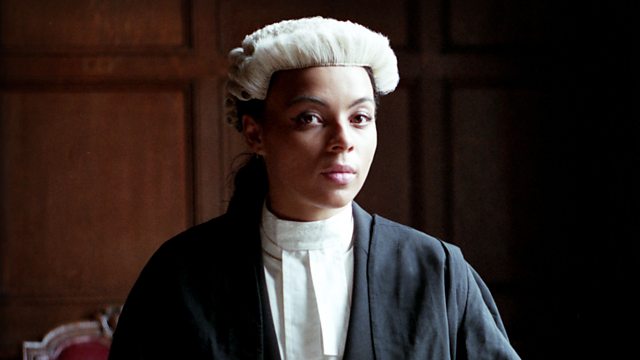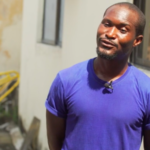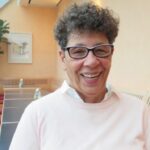Alexandra Wilson is a young black British barrister changing the face of Britain’s legal system.
Growing up, she never knew any lawyers but one day, after hearing the news that one of her close friends had been murdered by two black boys, she was motivated to become one.
“Ayo was a very close friend of mine and he was my cousin’s best friend. He was very sweet. We were teenagers at the time. I remember whenever we used to hang out, it was just pure fun. He was truly a lovely person and he was like family to me. So his nurder was extremely difficult for not only me but all of my family.
I found out from my aunt who called my dad that evening and my dad came and told me about it. I was in sixth form at the time and so I was revising for exams and I still remember how heartbreaking and frankly how shocked I was. Even now when I look back at that moment, it was difficult to even talk about because you just don’t expect to ever ever in your whole life be in a situation like that let alone when you are a teenager.
Ayo had been murdered by two boys who were seeking revenge for a murder of their friend who had been murdered earlier that day. They were out to get revenge on a rival gang. They saw Ayo out in their area. He had nothing to do with any of the gangs – it was a case of being at the wrong place at the wrong time. They saw Ayo, a boy they didn’t recognise and chased him. They had machetes and Ayo was stabbed multiple times. He died at the scene of the crime.
“What is so difficult is that he was killed by boys who didn’t know him. They didn’t even seek to find out who he was. They just saw a young black boy they didn’t recognise in their area and they’d reached the point where they had so much anger and hurt in them that they were just willing to kill a random person. For me, that is something I still struggle to completely understand. It really does highlight for me how much difficulties there still are in understanding knife violence for example.
It’s a lot more complex than it’s often painted to be.”
Knife crime in the UK has been on the rise since 2014, according to statistics from the British police. The worst of it happening in London and black people being at the centre of it. Most commonly portrayed as gang on gang violence while some acts remain a case of mistaken identity, knife crime is one of the crimes that has never really been cracked and it’s because of how complicated tensions are between the police and the black community.
Historically, black people and police in the UK have never got on well because of prejudice against black people. Legally, black people caught up in knife crimes are often represented by white lawyers or from other ethnicities that aren’t black.
“What happened to Ayo, there were two things I think that made me want to go into law. The first was that it really did open my eyes to knife violence and knife crime and associated gang violence. Before that it had been a distant issue to me. For me, Ayo’s case really brought it to the forefront of my mind. This was a case of mistaken identity and it really made me realise that it’s painted as gangs against gangs and gang rivalry but actually any black, young or old can easily be caught up and for me that was really one thing that made me think I want to do something that’s really going to have a real substantial impact in changing that.
Secondly, seeing those two boys as I said at the point in which they were able to kill someone they didn’t know; they were going to spend a long time in prison – it made me reflect on our criminal justice system and how many young black boys there are in prison. It got me thinking about the cycle people are going through. I want to be part of doing something to change that.”
When Alexandra told her family that she wanted to become a lawyer. She received mixed reactions.
“A lot of my cousins and my brothers around my age were confused by my choice. I think a lot of them saw entering the legal profession as part of the same system as joining the police. For such a long time there has been a difficult relationship between members of the black community and the police and my cousins, my friends had all felt that directly.
Other family members were really supportive but people felt that the system wouldn’t accept me. They had an idea of what lawyers were like and to them, I didn’t fit that mould – I’m mixed-race, from east London, I’m not private school educated and so I think they were worried whether I’d fit into the legal environment which is predominantly white.”
Despite her family’s worry, she excelled at exams and got accepted to study one of the hardest courses anyone can study at university; Philosophy, Politics and Economics popularly known in the UK as PPE and she studied at Oxford University.
In a class of over 100 students, Alexandra Wilson stood out as a black person as she was the only black person on her course. Academically, it was a breeze. Socially on the other hand, it was difficult for her.
“The education I got there was amazing, my tutors were brilliant and I had opportunities that I may have not got elsewhere like being able to do research on scholarship in America. But there were definitely very difficult parts of my experience at Oxford; all of which were from the social aspect of university. Particularly I felt like I didn’t really belong.”
Having experienced that at university, time for her to pursue her dream career – becoming a lawyer, Alexandra Wilson says she felt nervous entering the legal field.
“I was very nervous about it, to be honest. But the key thing for me, is that the only way to change things is to be a part of that change and so it would be very difficult in my opinion for me to criticise the law and our legal system without trying to do something about it.”
After getting her law qualification, Alexandra Wilson became the first ever person to be awarded the Queen’s Scholarship at London’s Middle Temple. It’s awarded to a legal student showing exceptional promise.
Now working as a barrister in criminal and family law, she has achieved what she set out to do – to become a lawyer in the black community who can work with black people to make a change in the legal system. She wants the black community to know that she is what a barrister looks like.
“I chose to do criminal and family law because those areas for me were an obvious choice because in both criminal and family law you’re dealing with the most important things in black people’s lives on a daily basis and the gratification you get from making a real difference in someone’s life is for me the most important thing. I wake up every morning and genuinely think to myself that today I am going to make a difference.
“I’m a young black woman at the age of 25, working in a legal profession representing people from the black community. It is important that I am that person for people on a number of occasions because a lot of my clients are black and young. On more than one occasion, my clients have said to me, they are surprised that I am a barrister, in a pleasant way. I think it’s because it’s someone they feel they can relate to and that’s often followed with a ‘I’m really glad that I have someone’ who is either a woman, who is young,or who is black.
When you are dealing with something that is so important to people it is key that they can trust you. One way that trust can be brought about in such a short period of time is by people feeling that they have something in common with you. What you’ve got to remember is that we often do meet clients on the same day that we’re representing them and sometimes less than an hour before. So there is a very very short window in which you have to build that relationship and ultimately for them to trust your advice so that they make the best decisions in court on that day.”
Having been through several cases involving young, vulnerable black people, Alexandra is carrying on in her pursuit to be part of a good and positive change in people’s lives.
“For me it’s really fulfilling to know that I have played a role in having a good impact on someone’s life and story.”














